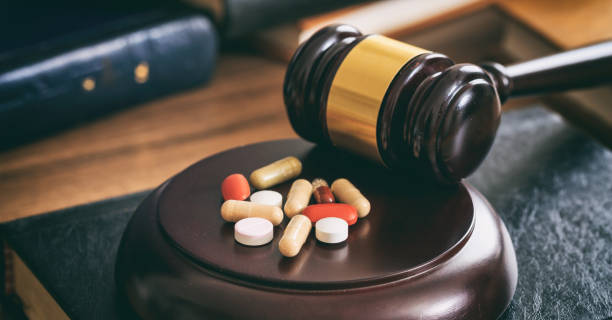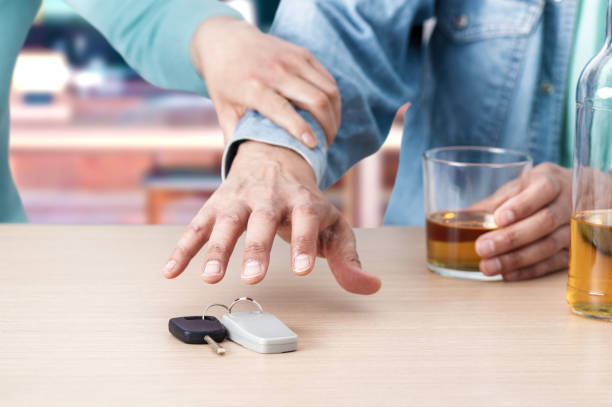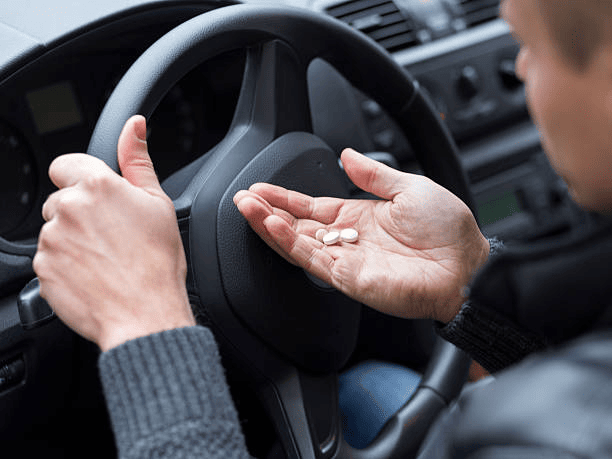Drug driving loopholes happen all the time, especially on Australian streets. It’s a no-brainer that drug driving is prohibited. Drug driving impairs reaction time on the road and the ability to comprehend traffic signals which causes a lot of road accidents. So, before you decide to take any illicit drugs and start driving, think of the drug driving offences you may face.
However, loopholes in legislation and limitations in testing methods have created a complex landscape where some impaired drivers might slip through the cracks. This raises critical questions about public safety and the effectiveness of current deterrents.
Let’s delve deeper into the intricacies of drug driving loopholes in Australia, exploring their potential consequences and ongoing efforts to address them.
Introduction on Laws and Penalties
Before we discuss any information about drug driving loopholes, let’s first uncover relevant laws about drink and drug driving. Driving under the influence of illegal drugs is strictly prohibited in New South Wales, and rightfully so. To ensure safety on the roads, the state enforces harsh penalties for those caught driving with any detectable presence of these substances in their system.
These penalties can range from significant fines and licence suspension to disqualification and even imprisonment. Police are equipped to detect drug use through roadside testing, which involves a quick saliva test. This test focuses on commonly abused drugs like:
- Cannabis
- Ecstasy (MDMA)
- Cocaine, and methamphetamine (ice or speed)
If the initial test indicates the presence of illegal drugs, it’s followed by an additional test, often involving blood or urine samples.
Drug Driving Loopholes: Penalties
Driving under the influence of drugs in New South Wales carries hefty penalties, as outlined below:
Financial Penalties:
1. Penalty Notice Fine:
- First offence: $603
2. Maximum Court-Imposed Fine:
- First offence: $2,200
- Second or subsequent offence: $3,300
Licence Disqualification:
1. Penalty Notice Suspension:
- First offence: 3 months
2. Minimum Disqualification:
- First offence: 3 months
- Second or subsequent offence: 6 months
3. Maximum Disqualification:
- First offence: 6 months (court can impose less)
- Second or subsequent offence: Unlimited (court can impose any length)
4. Automatic Disqualification:
- First offence: 6 months (unless court orders otherwise)
- Second or subsequent offence: 12 months (unless court orders otherwise)
Driving with morphine detected in your system is an offence, unless it’s from medically prescribed or pharmacy-purchased codeine taken correctly. Penalties for morphine offences are identical to those for other drug offences.

Drug Driving Loopholes: Road Transport Act 2013
New South Wales takes a firm stance against driving under the influence of drugs, as outlined in Section 111 of the Road Transport Act 2013. This law specifically prohibits driving, attempting to drive, or supervising a learner driver while having any illegal drug in your system. People who commit drug or drink driving usually got through oral fluid, blood test, a breathalyser test, or a urine test.
The law carries significant consequences for offenders, with maximum penalties of 20 penalty units for a first offence and 30 for subsequent offences. It’s crucial to note that Section 111 also addresses the presence of morphine.
While individuals with morphine in their system face similar penalties, the law provides a defence if they can prove the morphine originated from prescribed medication (consumed as directed by a medical professional) or codeine-based medication purchased at a pharmacy and taken as per the manufacturer’s instructions.
Relevant News
Let’s review an article from The Guardian which is relevant to drug driving loopholes in Australia. A recent NSW district court decision has sparked concerns about the future of drug-driving defences in the state. The case involved a man who tested positive for cocaine during a roadside drug test but claimed he was unaware of how the drug entered his system.
Indeed, the man’s appeal argued for “honest and reasonable mistake” as a defence. However, the judge ruled that the offence only requires proof of drug presence, not knowledge or intent. This “absolute liability” interpretation essentially eliminates the possibility of such defences, raising concerns from legal experts.
Key Points of Concern:
- Limited Defence Options: Under this article, individuals facing drug-driving charges might have very few ways to challenge when they plead guilty, even if they unknowingly ingested the drug.
- Potential for Unfair Convictions: This approach could lead to the conviction of individuals who are not actually impaired but still have residual traces of drugs in their system.
- Call for Legal Reform: The decision has reignited calls for reform of NSW’s drug-driving laws, with suggestions to clarify the specific liability and allow for defences like pleading guilty and stating it was an “honest and reasonable mistake.”
Common Loopholes in Drug Driving Offences
While loopholes in drug driving laws may exist, exploiting them comes with significant consequences. Offenders face hefty fines, driver licence suspension, and even jail time, which are further amplified for repeat offenders.
Additionally, civil liability, mandatory drug rehabilitation, and legal complexities add further weight to the argument against exploiting such loopholes. Here are some common drug driving loopholes:
- Reasonable grounds for testing drug drivers: While police can request a drug test under certain circumstances, the legal definition of “reasonable grounds” remains ambiguous, potentially creating uncertainty. This can potentially taint a driver’s criminal record
- “Mistake of fact” defence not applicable: Unlike some other offences, claiming accidental drug ingestion does not absolve you of a drug driving charge.
- Being “in charge” of the motor vehicle: Even if not actively driving, being in the driver’s seat with keys nearby can be interpreted as “being in charge” and lead to potential charges, even on private property.
- Test accuracy challenges: While presumed accurate, potential false positives due to legal substances or prescribed drug exist. Keeping the consumed substance and seeking a second test might be advisable.
- Prescription drugs and driving: While legal with a valid prescription, some medications can impair driving. Proving impairment solely on medication alone can be difficult, as the police may rely on observed behavior and physical signs.
- No current exemption for prescribed cannabis: As of now, driving under the influence of prescribed cannabis, even with a valid prescription, is illegal. This area is potentially undergoing legal changes.

We Can Help With Your Drug Driving Offence
JB Solicitors will thoroughly review your case details, including the circumstances of your arrest, the type of drug test administered, and any relevant evidence. This allows our drug driving lawyers to understand the specific challenges and potential defences available in your situation.
If the police stop that led to your arrest was not conducted legally, JB Solicitors can challenge its legality in court. This could potentially result in the dismissal of the charges against you.
Contact us today if you need more information about drug driving loopholes.
